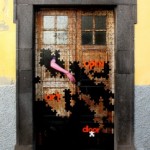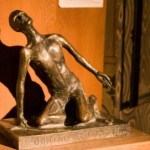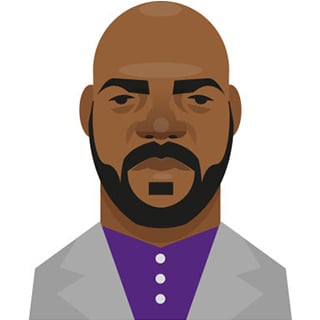 Luke writes that Jesus was praying, and then a disciple asked him to teach them to pray. And he taught them the prayer that is called The Lord’s prayer, which many of us learned as toddlers, at bedtime, from our mothers and fathers. Give us our daily bread and forgiveness, the prayer asks, asserting, for we ourselves forgive others. So these are the two basic needs Jesus sees. In Luke’s version, the prayer ends with the words Do not bring us to the time of trial. Many of us learned an older translation, lead us not into temptation, but deliver us from evil.
Luke writes that Jesus was praying, and then a disciple asked him to teach them to pray. And he taught them the prayer that is called The Lord’s prayer, which many of us learned as toddlers, at bedtime, from our mothers and fathers. Give us our daily bread and forgiveness, the prayer asks, asserting, for we ourselves forgive others. So these are the two basic needs Jesus sees. In Luke’s version, the prayer ends with the words Do not bring us to the time of trial. Many of us learned an older translation, lead us not into temptation, but deliver us from evil.
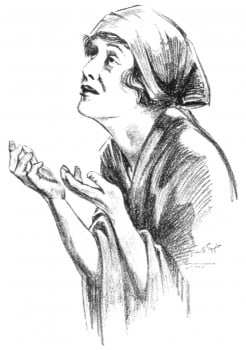 God, according to Jesus, is worshipped for goodness, not for powerfulness. This is a huge distinction from other gods, whose power, of sword, spell, thunderbolt, war-making, hunting, etc, is the basis of their holiness. The goodness of God, according to Jesus, is known in godly will at work in the world. And in the goodness of daily bread. Ask, Jesus urges, and you will receive. Seek, and you will find. Knock, and it will be opened to you. And he offers a human example, how people will, for their children, do good, even though they are otherwise mean or stingy, unforgiving. How much more goodness than is in you, is in God!, Jesus exclaims.
God, according to Jesus, is worshipped for goodness, not for powerfulness. This is a huge distinction from other gods, whose power, of sword, spell, thunderbolt, war-making, hunting, etc, is the basis of their holiness. The goodness of God, according to Jesus, is known in godly will at work in the world. And in the goodness of daily bread. Ask, Jesus urges, and you will receive. Seek, and you will find. Knock, and it will be opened to you. And he offers a human example, how people will, for their children, do good, even though they are otherwise mean or stingy, unforgiving. How much more goodness than is in you, is in God!, Jesus exclaims.
And I am brought to tears, reading this in the wake of what has happened to Trayvon Martin, on a street near his home, and in a courtroom, and in the media, and in American public opinion.
Is there anyone among you who, if your child asks for a fish, will give a snake instead of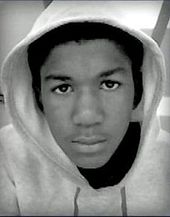 a fish? Or if the child asks for an egg, will give a scorpion? Jesus asked, rhetorically, to prove his point. Trayvon, at seventeen, got a scorpion. Well, not from his father, someone will surely want to say.
a fish? Or if the child asks for an egg, will give a scorpion? Jesus asked, rhetorically, to prove his point. Trayvon, at seventeen, got a scorpion. Well, not from his father, someone will surely want to say.
But that’s the point his mother is making, that George Zimmerman, the lawyers, the jury, and now the public, have not been seeing Trayvon as a child, and certainly not as their child. Jesus, who called us all children of the one Father, and brothers and sisters of his, may have overestimated our capacity for goodwill. Or we may have allowed ourselves to be seduced by the demons of power, whispering to us that we, like Lazarus, can have fine houses, and the poor man lying in the gutter (Matt. 25) better not ask us for anything.
Jesus, who replaced biological family with the family of community (these, he said, are my brothers and sisters, and he was pointing to the crowd at his feet), asserted again and again that biology is not destiny. He embraced women. He embraced people of other religions, nations, and yes, races. He embraced the poor, and an ethic of sharing. One of the earliest converts was a black Ethiopian eunuch, whom Phillip baptized. Phillip got Jesus. But many American Christians don’t. We don’t see Trayvon as a child at all, we see him as a threat. Too tall. Hoodie. Out at 11 PM. Something in his hand. We see him the way George Zimmerman saw him. And we see George Zimmerman as ourselves.
George Zimmerman absorbed the cultural values he was taught about who was untrustworthy, about what it takes to be a man, about guns and righteousness. But the President has asked us to consider, if the same incident had occurred and Trayvon had, perceiving himself to be pursued, confronted his pursuer and then in their struggle, shot him: would we see this the same way?
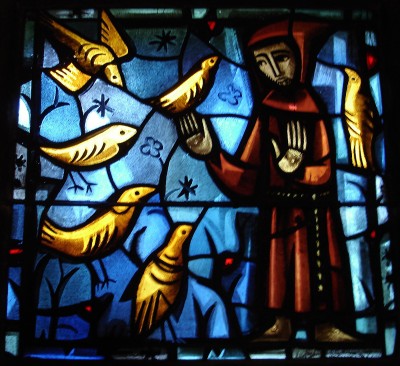 We all watch so many TV shows and films that teach us to be aware of stranger danger. And we all see ourselves as those who are unsafe in our homes. So the dangerous stranger trumps the stranger we are to welcome, which is the image Jesus held up for our belief. And the gods of the gun trump the God of goodness in our minds and hearts.
We all watch so many TV shows and films that teach us to be aware of stranger danger. And we all see ourselves as those who are unsafe in our homes. So the dangerous stranger trumps the stranger we are to welcome, which is the image Jesus held up for our belief. And the gods of the gun trump the God of goodness in our minds and hearts.
And we have diminished our understanding of the demonic aspect of racism, reducing it to small, forbidden details, like saying the “N” word, which are the minute tip of the iceberg of fear in which our society is encased. The “N” word does not begin to describe the reality and the power of racial fear in America.
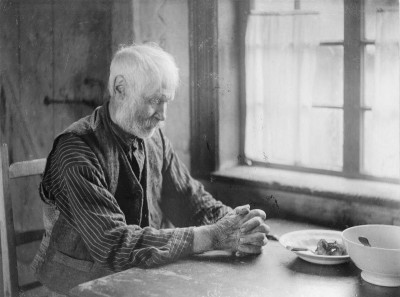 May God forgive us for serving the shadows of darkness that live in us, and for transferring them to people who are in some way unlike us.
May God forgive us for serving the shadows of darkness that live in us, and for transferring them to people who are in some way unlike us.
May God save us from the time of trial when, in our blindness, we know not what we are doing, and when no word of remorse for the death of a young black man is spoken. Do we think Jesus only meant trials after we die? His very illustrations belie that assumption.
May we pray the prayer of the poet T.S. Eliot:
We acknowledge ourselves as common people,
as men and women who shut the door and sit by the fire;
who fear the blessing of God, the loneliness of the night of God,
the surrender required, the deprivation inflicted.
We fear human injustice
less than we fear the justice of God;
we fear the hand at the window, the fire in the thatch,
the fist in the tavern, the push into the canal,
less than we fear the love of God.
Lord, have mercy upon us.
May we work earnestly, and urgently, at the open handed generosity Jesus taught. May we seek the image of God in it, and bend ourselves to become it: the image of God.
__________________________________________________
Illustrations
1. Tiruvanimayur. Family Giving Thanks to the Ocean. 2008 Photograph. Chennai, India. Vanderbilt Divinity Library, Art in the Christian Tradition.
2. US Food Service Administration Poster, 1917, The Prayer of Millions. National Archives, Washington D.C. Vanderbilt Divinity Library, Art in the Christian Tradition.
3. Trayvon Martin hooded. Image from Wikipedia page, Shooting of Trayvon Martin.
4. Brother Eric, 20th c. Taize Community, France. Prayer of St. Francis.
Vanderbilt Divinity Library, Art in the Christian Tradition
5. Eickemeyer, Rudolf, 1906, Give Us This Day Our Daily Bread, Library of Congress, D.C.
Quotation, from The Dry Salvages, by T.S. Eliot



